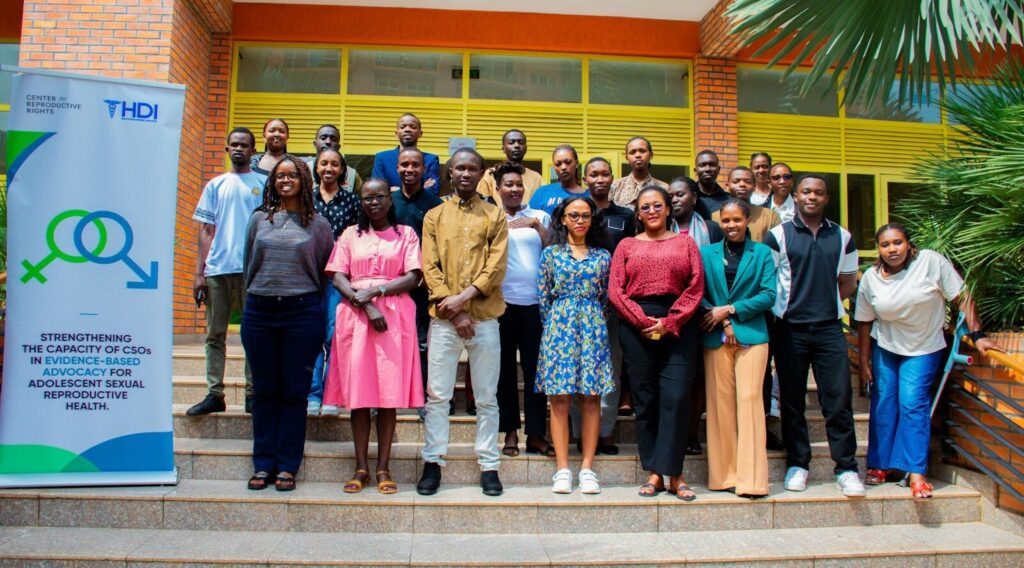
Introduction
From 29th – 30th September 2025, MDFC participated in a two-day workshop and advocacy meeting hosted by HDI Rwanda and Society for Family Health. The training focused on the Sexual and Reproductive Health and Rights (SRHR) and Family Planning (FP) Budget Brief. The meeting provided an opportunity to reflect on Rwanda’s financing priorities for SRHR and FP, share evidence-based findings, and strengthen advocacy efforts aimed at bridging financing gaps. It also explored the legal and policy reforms that shape adolescent access to SRHR services. The sessions brought together stakeholders from civil society, government institutions, and development partners to align strategies and build consensus on the way forward.
Objectives
The workshop was organized with the following objectives:
1. To present the findings of the SRHR and FP Budget Brief.
2. To gather additional inputs and perspectives from stakeholders.
3. To define the way forward for strengthening SRHR and FP financing and advocacy in Rwanda.
Day 1 Highlights

The first day began with the presentation of the SRHR and FP Budget Brief by Yvonne, which outlined the background, methodology, and results of the analysis. The discussion highlighted the alignment of SRHR and FP programs with the National Strategy for Transformation (NST2 2024–2029), emphasizing their importance in reducing maternal and child deaths while promoting socioeconomic transformation.
Key evidence shared included:
- Over 50% of women in Rwanda use modern contraceptive methods, yet unmet needs remain high, especially among unmarried sexually active women (37%) compared to married women (14%). Teenage pregnancy stands at 5%.
- While more than 90% of health centers have youth corners, barriers persist such as limited trained staff, high costs in private facilities, and gaps in inclusive services for persons with disabilities.
- Rwanda’s health budget has grown nominally, but the proportion allocated to SRHR and FP has decreased marginally.
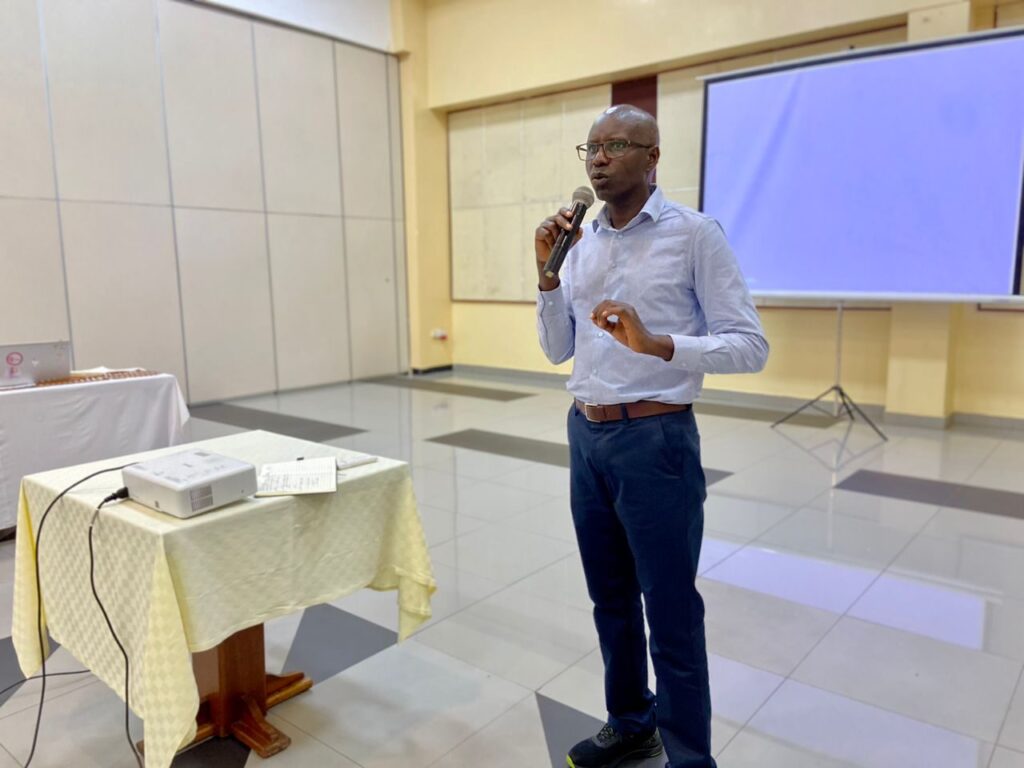
The Rwanda Biomedical Centre (RBC) representative also shared ongoing efforts, including revising sign language education, strengthening youth-friendly peer educators, and leveraging technology for better data collection.
Discussions stressed that investing in SRHR and FP is not only a health issue but also an economic and social development priority.
Day 2 Highlights
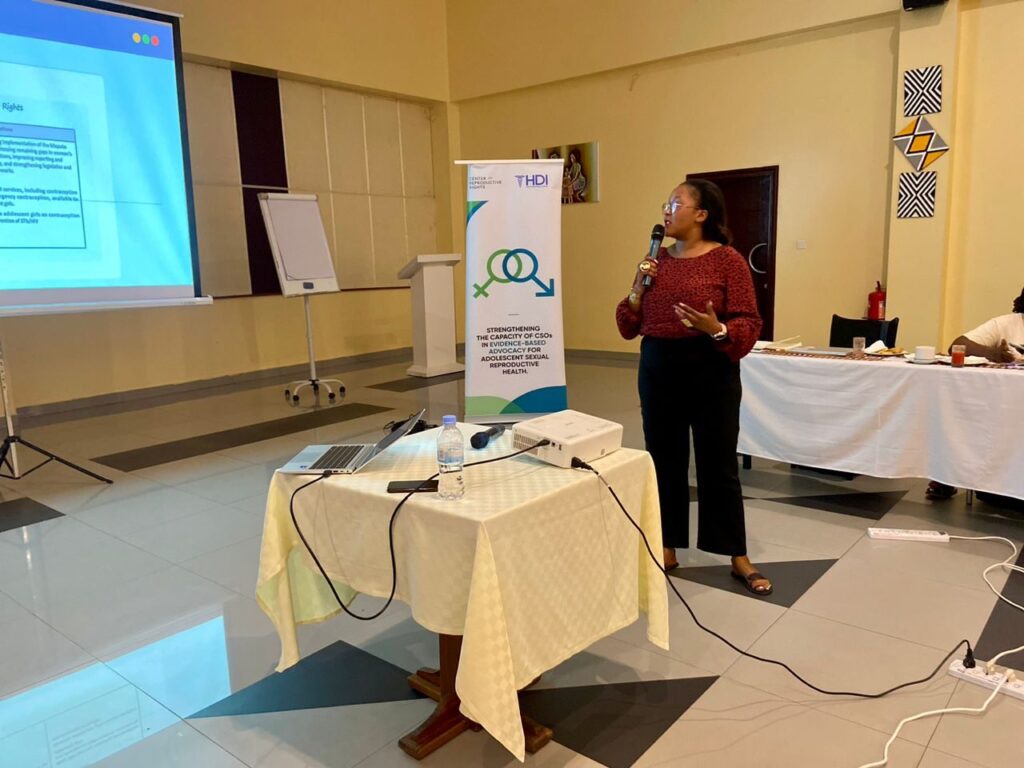
The second day shifted focus to Rwanda’s legal and advocacy journey in expanding adolescents’ access to SRHR services. Facilitated by Diane, participants reviewed ratified treaties such as CEDAW and the Maputo Protocol and reflected on the country’s advocacy path from 2008 to the present.
Key milestones discussed included:
- The 2018 adolescent petition to the Prime Minister for the amendment of restrictive laws.
- The role of CSOs such as HDI, Kasha Rwanda, and Plan International in building youth advocacy capacity.
- The 2024 Cabinet endorsement of a consolidated draft law on health services.
- Parliamentary engagement throughout 2025, culminating in the landmark passage of a law in August 2025, officially gazetted on September 18, 2025, which allows adolescents to access SRHR services without third-party consent.
The session underscored the vital role of civil society in shaping advocacy and engaging parliamentarians to drive inclusive reforms.
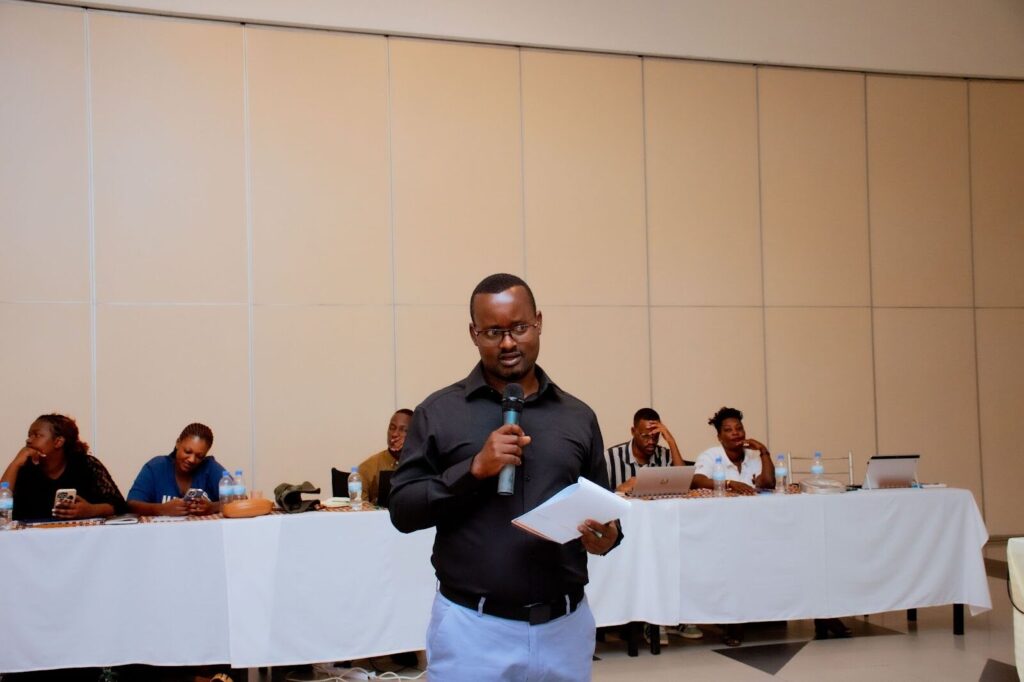
This was followed by Chris’s session on “Adolescents’ Access to SRHR in Rwanda: A Journey of Legal Reform and Advocacy.” Chris provided a comprehensive overview of the advocacy journey from 2008 to 2025, highlighting:
- The role of youth petitions, beginning with the 2018 call to amend Article 7
- The engagement of CSOs in building adolescent advocacy capacity between 2019 and 2020.
- The government’s commitment in 2024, leading to Cabinet’s endorsement of a consolidated health draft law.
- Parliamentary discussions and consultations in 2025, resulting in the landmark law passed in August 2025 and published in the Official Gazette in September 2025.
Chris emphasized that advocacy successes were made possible through collaboration between youth, civil society organizations, and supportive policymakers. He also underlined the importance of continuing to raise awareness so the new law brings meaningful changes in young people’s lives.
Key Takeaways
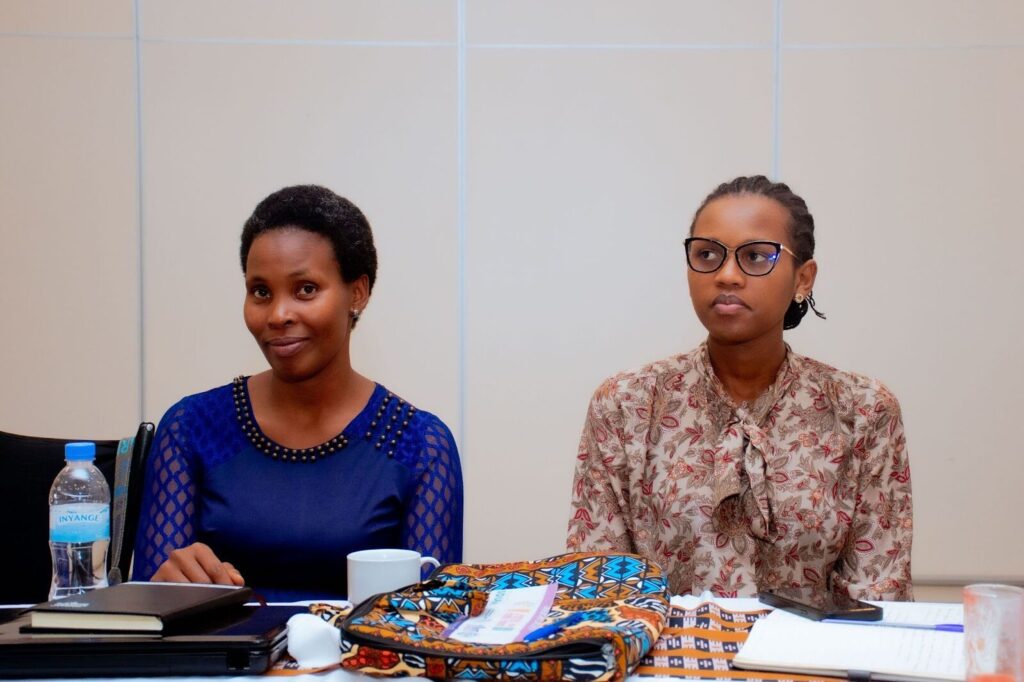
- Evidence from the Budget Brief demonstrates the urgent need for increased investment in SRHR and FP to meet Rwanda’s national and international commitments.
- Despite progress, significant financing gaps persist, limiting access to quality and inclusive SRHR services.
- Adolescents and young people continue to face barriers, but the new law enacted in September 2025 marks a historic shift in promoting their autonomy and rights.
- Stakeholders agreed that implementation of the law requires coordinated efforts in awareness raising, capacity building, and community engagement.
Recommendations
- Strengthen Human Resources: Increase the number of trained health workers, particularly for adolescent-focused and inclusive SRHR services, including braille and sign language tools for people with disabilities.
- Boost Financing: Enhance domestic funding for SRHR and FP while ensuring services in public facilities remain affordable and accessible.
- Private Sector Engagement: Create incentives for private and faith-based facilities to expand SRHR services, ensuring privacy and affordability.
- Awareness and Advocacy: Launch media campaigns, engage schools, and mobilize community health workers to promote understanding of the new law and its benefits for adolescents.
- Civil Society Leadership: Encourage CSOs to continue monitoring gaps, sharing evidence, and supporting implementation of the law at all levels.
Conclusion
The two-day workshop reinforced the urgency of addressing financing gaps in SRHR and FP while recognizing Rwanda’s historic legal progress for adolescents’ rights. Moving forward, collective action and coordinated advocacy will be key to ensuring these commitments translate into accessible, inclusive, and sustainable services.
